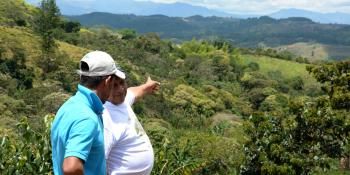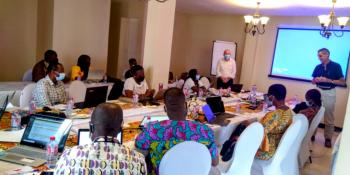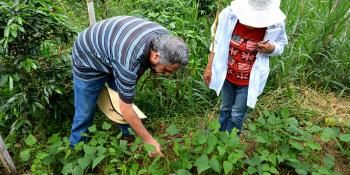Why Ghana should be a member of the Global Alliance for Climate-Smart Agriculture
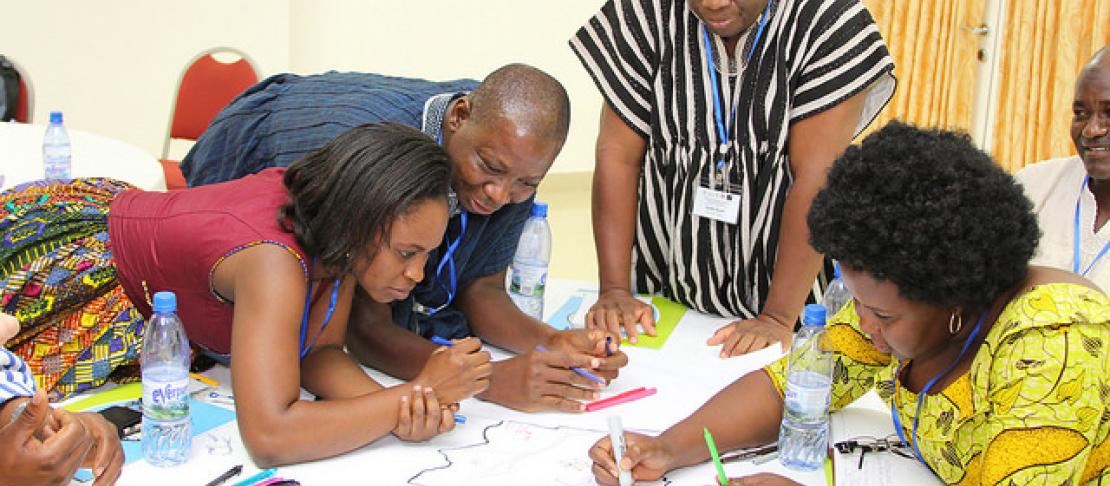
Post-conference reflections of Dr Karbo, a CCAFS sponsored participant to 3rd CSA 2015 Science Conference in Montpellier.
The Montpellier conference wanted to give a new impulse to climate-smart agriculture (CSA). It set out to strengthen the scientific community around CSA, contribute to the development of a global research agenda, update knowledge, and provide recommendations for policymakers. What follows are Dr. Karbo's post-conference reflections.
Main message
Ghana has what it takes to be a member of the Global Alliance for Climate-Smart Agriculture (GACSA). However, there is a need to create more awareness for much of the rest of West Africa to become members of the Alliance in order to benefit their agricultural development and food systems.
Context
The CGIAR Research Program on Climate Change, Agriculture and Food Security (CCAFS) platform in Ghana, established in 2012 by a multi-stakeholder group, is hosted by the CSIR-Animal Research Institute.
As a scientist and chairman facilitating platform activities, I was among the over 750 participants at the 3rd CSA 2015 science conference held from 16-18 March in the beautiful Mediterranean city of Montpellier to share and learn our experiences.
I was, however, there early to participate in the CSA Knowledge Action Group workshop held on 15 March at Agropolis and before departure to Ghana, also participated in the gender seminar held in Paris on 19 March 2015. CCAFS sponsored my participation in all these meetings for which I am very thankful. In what follows, I share some of the experiences from a successful conference and workshop, particularly focusing on the discussions and reflection of Ghana being a member of the Global Alliance for Climate-Smart Agriculture.
Posters for networking
Posters were galore carrying a diversity of technical and institutional scientific information on climate-smart agriculture technologies and practices from across the globe.
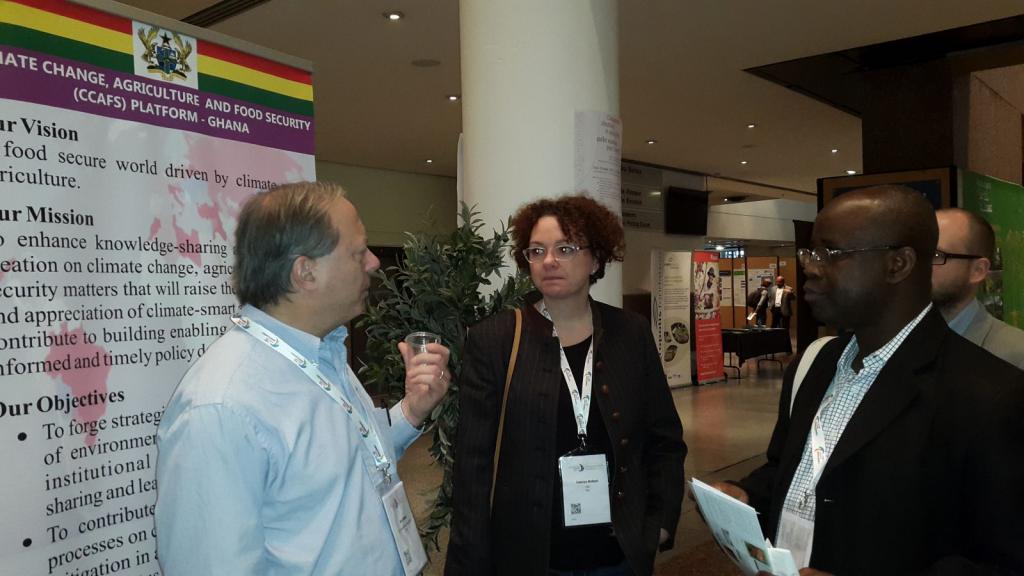
discussions about the poster presented by Ghana. photo: karbo naaminong
My poster location was identified by 29 and 185 for the 16th and 17th days of display respectively. The poster titled “Profile of Climate Smart Agricultural Technologies in the Dry Guinea Savannah and Forest Agro Ecological Zones in Ghana” went up on day one. This was followed by “Learning and Sharing Science-Policy for Action Building Resilience to Climate Change: Experiences of Climate Change, Agriculture and Food Security Platform, Ghana" on day two at poster station 185. These provided bases for all forms of interactions as opposed to the oral session presentations. Here, I observed that people passed by and did self-learning by reading, others followed up for explanations one on one or in groups of two and three while others went on further to take pictures of the contents. But above all, cards were exchanged in the process to possibly enhance networking. I bagged about 20 cards in addition to perceived outcomes from the interactions with participants.
Participation outcomes
The poster sessions produced three exciting effects in my view worth taking forward in perspective after the conference. The desire for North-South collaboration by scientists in research and development for CSA (R&D4CSA) was evident. The poster on profiling CSA practices by agro-ecological zones for example appeared to have attracted scientists from the French National Institute for Agricultural Research (INRA) to discuss the possibility of establishing links with CISR-Ghana to conduct legume work in the dry guinea savannah farming system. Similarly, a scientist from INRA/CIRAD, expressed interest in the platform activities since she was working in the area of governance.
However, the future links could not be defined as time was short for discussions. But a more concrete outcome was the issue of membership of the Global Alliance for Climate-Smart Agriculture which discussion was sparked on 15 March at Agropolis and continued at the Le Corum 185 poster location on 17 March. It was recalled that Ghana is already a member of the Global Research Alliance (GRA) on greenhouse gas emissions. His Excellency, President John Mahama launched the Ghana national climate change policy (NCCP) and the CCAFS platform is facilitating the Ministry of Food and Agriculture (MoFA) in the development of a climate-smart action plan to operationalize the agricultural sector of the policy document. Furthermore, His Excellency, Former President J. A. Kuffour currently is the UN Ambassador on Climate Change. All these and based on the poster exposition of the platform activities and the interaction, the Global Knowledge Action Group (GKAG) unit, represented by Marc and Federica at the poster 185 concluded that “Ghana has what it takes to be a member of the GACSA”.
There appeared to be follow-up information gap after the 3rd Global conference on agriculture, food security and climate change held in Johannesburg, where the Alliance for action was seriously discussed. Some of us from Africa were of the view that aggressive national level sensitization for awareness creation was desirable to get more states and their citizenry on board. This never happened to scale in the case of West Africa. However, Montpellier CSA2015 has provided the opportunity and now we have a copy of the GACSA Framework document to study. So wait a minute. Ghana platform is coming and may come with more colleagues from West Africa. Though things progressed slowly since Johannesburg it was however nice to observe that following the head of states declaration in Malabo, ECOWAS has taken forward the continental decision to act at regional level through the creation of a West Africa CSA Alliance, which was culminated by the organization of a regional stakeholder forum on CSA in Bamako, June 2015. This as it appears should add momentum to the AU-NEPAD vision “25-25” CSA articulated through its Climate-smart agriculture and Farming systems orientation workshop held in April 2014 at the World Agroforestry Centre, Nairobi.
Other posters presented during the conference
Climate-smart agriculture. Towards a concerted definition of national priorities in Mali
Presentation on climate variability and extremes
Facing climate variability and extremes
Related blogs
Why should climate change be integrated into policy decision-making in Senegal ?
Keys to an effective dialogue between researchers and policy-makers in Mali
Dr Karbo Naaminong works as Reseach Scientist at Council for Scientific and Industrial Research (CSIR) in Ghana

